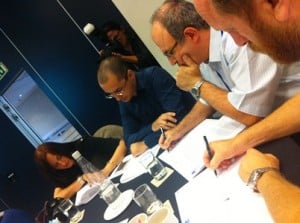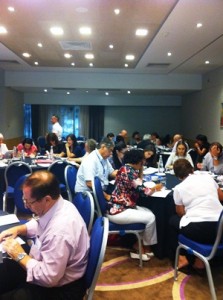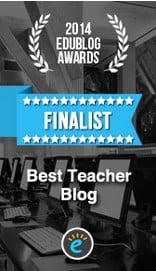Reflections on IATEFL ReSIG Workshop; “Quality Research in ELT” by Simon Borg
 Professor Simon Borg gave a pre-conference workshop entitled “Doing Quality ELT Research” at the onset of 3rd ELT Malta Conference “The Learning ELT Professional”. I was fortunate enough to attend it in sunny and beautiful Malta with more than 50 participants. It was great to see that many educators are into research. The workshop had a 360-degree look at the research process and focused on traits of a good researcher, dimensions maintaining quality in research, essentials steps to be considered in planning the research, objectives and research questions, points to consider while conducting research, analysing data and reporting.Throughout the workshop Professor Borg challenged participants’ preconceptions about conducting research and encouraged reflection on assessing research quality through a criteria. I have to say that I really enjoyed being in the audience and benefitted a lot from the workshop. I would like to reflect on some highlights accompanied by some quotations that lingered in my mind at the end of the day.
Professor Simon Borg gave a pre-conference workshop entitled “Doing Quality ELT Research” at the onset of 3rd ELT Malta Conference “The Learning ELT Professional”. I was fortunate enough to attend it in sunny and beautiful Malta with more than 50 participants. It was great to see that many educators are into research. The workshop had a 360-degree look at the research process and focused on traits of a good researcher, dimensions maintaining quality in research, essentials steps to be considered in planning the research, objectives and research questions, points to consider while conducting research, analysing data and reporting.Throughout the workshop Professor Borg challenged participants’ preconceptions about conducting research and encouraged reflection on assessing research quality through a criteria. I have to say that I really enjoyed being in the audience and benefitted a lot from the workshop. I would like to reflect on some highlights accompanied by some quotations that lingered in my mind at the end of the day.
What counts as data, what’s research and who is a good researcher?
We started off by framing our own questions that we hope to be answered in the workshop at the end of the day. Mine was about having a framework or a blueprint for conducting research. I mean, where do you start from? What aspects need to be examined and monitored?
 We worked in groups shared our views about what counts as data. One example was a research study which examined impact of pre-service English language teacher education on trainees’ beliefs through an innovative visual methods study at the University of Barcelona. Discovering alternative kinds of data that could be used in a study, including photos and drawings, was very beneficial because being aware of the full range of data can enable researchers to make informed choices among a greater spectrum of data collection.
We worked in groups shared our views about what counts as data. One example was a research study which examined impact of pre-service English language teacher education on trainees’ beliefs through an innovative visual methods study at the University of Barcelona. Discovering alternative kinds of data that could be used in a study, including photos and drawings, was very beneficial because being aware of the full range of data can enable researchers to make informed choices among a greater spectrum of data collection.
“You can be subjective as long as you can support it in an objective way”
Also, we discussed traits that a good researcher should have such as being self-critical, patience, and perseverance in addition to the ones outlined by Zoltan Dornyeri (2007) such as experience, academic expertise, curiosity, common sense, good ideas, discipline, reliability and social responsibility. In the end, the researcher sounded like a Marvel character with super powers but it’s all in the name of maintaining quality in research and it’s definitely worth the try.
One area that we talked about was the concept of objectivity. Is it possible for the researcher to be objective in a research study? The overall conclusion was that researchers need to be disciplined about subjectivity since it’s very difficult to completely divorce the personal dimension and human element from research. In other words there is always an element of subjectivity but it should be controlled and monitored in order not to direct the research and findings towards the results you were hoping for as the researcher. Therefore the cure is “disciplined subjectivity” as Professor Borg stated.
“You don’t fall out of bed and say I’ll do research”
As for what research is Professor Borg suggests a generic definition which states that research is planned, systematic, purposeful, empirical, analytic and made public. During our discussions planning stage received the utmost attention because as Levine says: ‘There is nothing more practical than a good theory,’ (1952). These characteristics are important because these differentiate research from reflective practice.
Quality in Planning, Conducting and Reporting Research
Planning
A number of tasks were mentioned as prerequisite agenda items for the planning stage. These tasks involve defining the focus of the study, developing a rationale for research, conducting a literature review, specifying research objectives and questions as well as design of the study. We were presented with common critical comments made by journal reviewers when papers were rejected and these comments highlight some common deficiencies that stem from lack of a critical literature review. It was stressed that literature review should provide a theoretical context rather than a historical one. Professor Borg provided couple of on-line resources as well. On-line resources for language education research
“Original doesn’t mean no one in the universe has ever thought about it before”
Choice of topic is of vital importance for a quality research and discussion about writing good research questions provided good insights. It was concluded that topics should be;
- timely (aligned with the current ELT trends and/or current school policies and strategies),
- focused, original (understudied),
- relevant, and
- practical (value of the topic with respect to offering practical solutions to educational world).
“Why do weak students get low scores?”
After examining the suggested criteria to assess quality of research questions we went over example research questions and screened them against the given criteria.
It was concluded that research questions should be clear, specific, and answerable, interconnected, linked to previous research, worth of the effort and knowledge extending in order to contribute one drop of water to the knowledge ocean.
Conducting the study
Regarding research design the workshop stimulated quality discussion about dimensions of research that should be taken into consideration. These range from determining the research philosophy, methodology (qualitative, quantitative, mixed method), research approach (case study, experiment…etc.), participants, ethics, data collection methods, time (longitudinal, cross sectional …etc.) to approach to data analysis. Some of the buzz words that guided our discussion were validity, reliability, generalizability, and objectivity. Then, Professor Borg introduced certain ways in enhancing quality in collecting and analyzing data such as being aware of data collection methods in terms of their strengths and weaknesses, evaluating methods in relation to the purposes of the study and devising strategies such as prolonged engagement, triangulation, member checks, inter-reliability and avoiding poor coding of qualitative data among many others to overcome validity threats.
Reporting Research
In this section of the workshop we delved into strategies to make research public, maintain and increase credibility as researchers by providing thick description regarding how the research was conducted and having a good discussion session critically weaving previous research with findings and extending knowledge in some way rather than repeating previous findings.
Fourteen Steps to Writing an Effective Discussion Section
Writing a research article: advice to beginners
As a wrap up, we were asked to revisit the initial question we had in mind at the beginning and reflect on ‘to what extent it had been answered’. Mine was answered comprehensively.
Now, I wonder how widespread research is as a professional development strategy. I mean, how many of us in our own context conduct research or are asked to carry out research as a strategy for professional development. How can research contribute to teaching practices?
I really wish that teacher research will flourish as a strategy for continuous teacher development…
Other Resources that could be helpful
- Teachers as researchers
- An introduction to teacher research
- Benefits of Teacher Research
- Teacher research as a form of CPD
References
Dornyei, Z. (2007). Research methods in applied linguistics. Oxford: Oxford University Press
Lewin, K. (1952). Field theory in social science: Selected theoretical papers by Kurt Lewin.
London: Tavistock



![IMG_0849[1]](https://aslisaglam.edublogs.org/files/2012/04/IMG_08491-2em60th-300x300.jpg)
![IMG_0759[1]](https://aslisaglam.edublogs.org/files/2012/04/IMG_07591-q8zl08-300x225.jpg)
![IMG_0842[1]](https://aslisaglam.edublogs.org/files/2012/04/IMG_08421-20k94y7-300x300.jpg)



Recent Comments